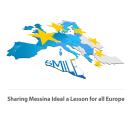Pierre Werner and Europe
This research project is dedicated to the European vocation and achievements of Pierre Werner, former Luxembourg Prime Minister, Finance Minister and Foreign Minister, unanimously recognised as one of the architects of Economic and Monetary Union.






